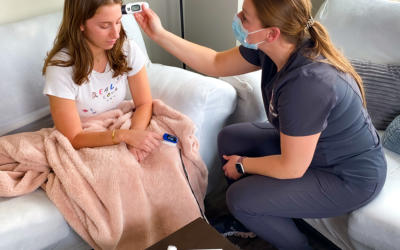Psychiatric symptoms are a call for transformation. If your mental health is suffering, it’s a demand for change. Your answers might come in small, simple steps, like needing vitamins, or maybe your body is crying out for nourishment. These changes can help even if you need to make more difficult changes, like within relationships. Small self-care steps, along with help from a mental health provider, like Pivotal Health, can make a big difference.
Clinicians at Pivotal Health are trained in the language of the body. You know the language of your life. For healing, you need both.
Boost Mental Health in These Areas
Even if it feels out of control now, the foundation of your mental health is under your control. The 8 steps below can help you build your mental and physical health. Doing this can make it easier to tackle harder changes. Start out focusing on:
- Nourishment: Growing research shows that nutrition affects mental health. Eating more nutrient-rich foods and less processed, junk food can help improve foundational mental health. Honor your body with what you feed it. Your Pivotal Health provider can help you create a personalized diet that works for you and helps to boost your happiness.
- Sleep: Your brain cleanses itself while you sleep. A 2021 CDC study shows that people who average six hours or less of sleep every night are about 2.5 times more likely to have frequent mental distress than those who sleep more than six hours. Your Pivotal Health provider can help you improve your sleep routine with sleep hygiene tips to help you get the sleep you need.
- Hydration: Drinking enough water, according to a 2018 study, is associated with less depression and anxiety in adults. It’s complicated why, but it works. Eight cups a day, without caffeine or sugar!
- Joyful movement: Exercise releases chemicals that make us feel good. Don’t wait until you feel motivated – just get moving doing something that’s fun. Your motivation will come. People who exercise report fewer days of poor mental health than those who don’t exercise at all. Gardening, walking, hiking, and yoga all count as exercise.
- Avoid drugs & alcohol: We’ve all got vices, but more than one in four adults living with serious mental health concerns also have a substance abuse issue. Don’t sacrifice your long-term happiness for short-term toxic self-medication. Pivotal Health clinicians can help connect you with the right providers to help you combat substance abuse.
- Bring regular laughter into your life. This can take effort because you might not live with a comedian and wake up to jokes every day. Laughter releases happy chemicals and reduces cortisol, a hormone that contributes to stress. Play with your pet, get together with light-hearted friends, or even watching pet videos or bloopers is a place to start.
- Root out inflammation. With your provider, consider sources of inflammation such as in your thyroid or gut. Your Pivotal Health provider can help you discover potential inflammatory conditions and help with a treatment plan.
- Build a mental health team that believes in you. Your team should include a therapist or coach. They will help you build skills to express yourself, focus on the present, manage your thoughts and feelings, and get through crises. Supportive people believe your feelings are reasonable, which improves your confidence and can challenge you at the same time.
A Word About Mental Health Medication
These self-care tips are important for everyone, regardless of whether they’re experiencing issues with their mental health. For some people, psychiatric medications may improve mental health, but they are not right for everyone.
Whether you are thinking about taking psychiatric medications, or have depended on them for a long time, you deserve to know all of your options. Unfortunately, these conversations and individual, customized approaches take more time than many doctors are allowed to spend with patients.
Whether or not you decide that psychiatric medications are right for you, you can improve your mental health. Pivotal Health’s personalized approach in the comfort of your home helps to improve the connection we have with patients, building trust between us. We help patients figure out how to heal and claim the well-being they deserve.












